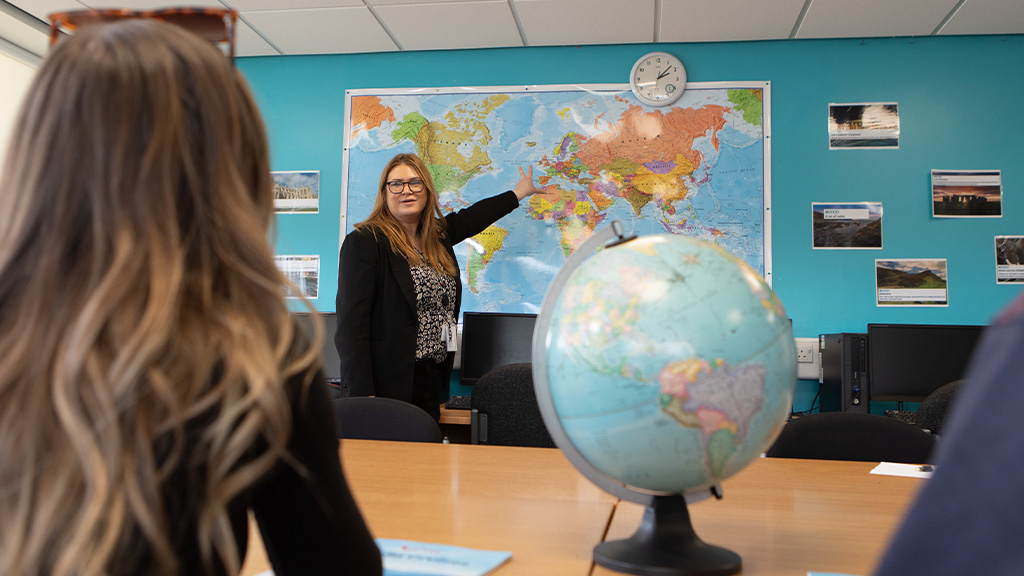Course Overview
This course can either be studied at Wakefield College or Selby College.
Geography relates to the world around us, it is topical, exciting and you are always actively involved in learning, either in the classroom or on field trips.
Geography is suitable for anyone who has an interest in the study of the earth’s landscapes, people, places and environments. It informs us about the places and communities in which we live and work, our natural environments and the pressures they face, the interconnectedness of the world and our communities within it and how and why the world is changing.
Lessons focus on:
- Introducing new topics and ideas
- Case study research
- Checking understanding
- Applying your learning to the exam
- Practicing skills such as data manipulation and mapwork
Practical skills are essential at A Level, so some lessons are spent outside the classroom, giving you the opportunity to test geographical ideas in the real world.
We also host speakers from local and national organisations to provide a range of viewpoints on the topics we study.
All the resources you will need are stored online and many activities will be computer based in an effort to reduce our carbon footprint.
What You Will Study
Year 1 of the course consists of four main areas:
- Tectonic Processes and Hazards – a study of the causes of tectonic hazards, the impact of tectonic activity on people, and responses.
- Landscape Systems, Processes and Change – an integrated study of processes, landforms and landscapes.
- Globalisation – causes and consequences for different people and places.
- Shaping Places: Regenerating Places – the meanings and identities attached to different places.
Year 2 of the course comprises of:
- The Water Cycle and Water Insecurity – human and natural factors that impact on water cycling, consequences for water security and future conflicts.
- The Carbon Cycle and Energy Security – human and natural factors, the consequences for ecosystems and management strategies.
- Superpowers – the reasons for shifting economic and political power, the impacts of superpowers and their influence in governing the global commons.
- Health and Human Rights – consideration of variations in levels of human development and the interventions used to support the promotion of Human Rights.
- How You Will Be Assessed
You will take three exams which total 80% of your grade, with 20% for the independent investigation.
All exams are at the end of the course and include:
- Terminology questions which require a precise definition
- Short-answer questions using a resource, such as a graph, photograph or map
- Short answer questions requiring explanation or analysis
- Skills questions where you make calculations
- Short essays where you will evaluate, discuss or assess a point of view, action or issue
- Longer essays which require you to undertake a more detailed examination of a topic
- Entry Requirements
5 GCSEs at Grade 9-4, including English Language.
PLUS
Grade 5 in Maths OR Science.
- Further Study
Geography A Level is one of the facilitating subjects for Russell Group universities, which may be an entry requirement for the university course you choose, whether related to geography or not. Therefore, studying geography, even if you are not sure of your next steps, will help to keep your options open. Geography A Level is particularly useful for the following types of university course:
- Sustainability and Environmental Policy
- Environmental science
- Anthropology and Archaeology
- Civil Engineering or urban planning
- Economics and Business
- Estate Management and Surveying
- Geology and Earth Sciences
- History or Sociology
- Human or Physical Geography
- Meteorology or Hazard Management
- Philosophy or politics
- Transport Studies




